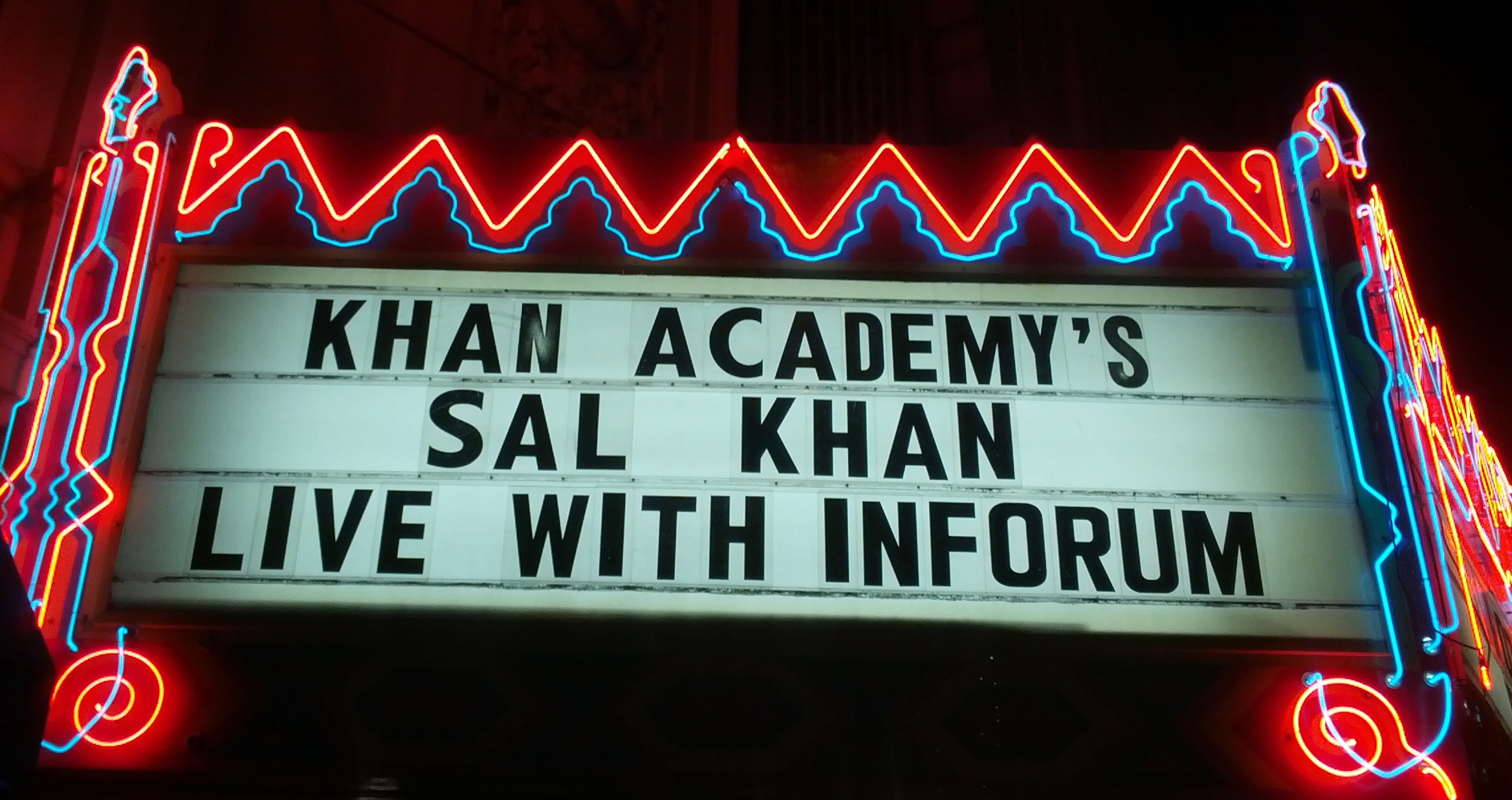 Last night I went to the Castro Theatre to see a Q & A with Sal Khan of the Khan Academy. I’d never been to that theater before, so the venue alone was kind of a treat. It’s a huge, classic place that looks like it hasn’t been altered much from when it opened in 1922.
Last night I went to the Castro Theatre to see a Q & A with Sal Khan of the Khan Academy. I’d never been to that theater before, so the venue alone was kind of a treat. It’s a huge, classic place that looks like it hasn’t been altered much from when it opened in 1922.
It was also inspirational to hear Sal talk about the history of KA and where he thinks education will go in the future.
A couple of takeaways:
- He hates Prussians. Well, at least the “Prussian” approach to education. He mentioned several times that the downside to public education has been a very measured and timed approach for all students. Sal thinks this necessarily creates “gaps.” If you got a C in a specific topic, there’s nothing you can do about it; the class is moving on.
- He isn’t particularly worried about access to tech. Sal did mention that 20-30% of households in the US (even in the Bay Area) don’t have internet at home. However, he doesn’t seem concerned that this will be a long-term barrier to online education like KA. Developing countries and poor people in wealthy countries may not have good internet access now, but they could leapfrog current platforms through the development of mobile technology.
- He thinks skills will be more important than grades. That is, as more options develop for people to learn outside of school and demonstrate their proficiency, employers will value portfolios of accomplishments more than grades and test scores. This will allow some people to follow an alternative career path that doesn’t exist now.
Overall, I tend to agree with most of what he predicted about the future of education, but I also think that time will tell. Sal gave Google as an example of a company that might begin to value online certificates as much as, or more than, traditional measurements. I suspect that the real indication of change in this area will be when non-tech companies begin to accept new certificates. At that point, there may be a real pressure for ordinary people to consider online education as an alternative to traditional schools, rather than simply a supplement.